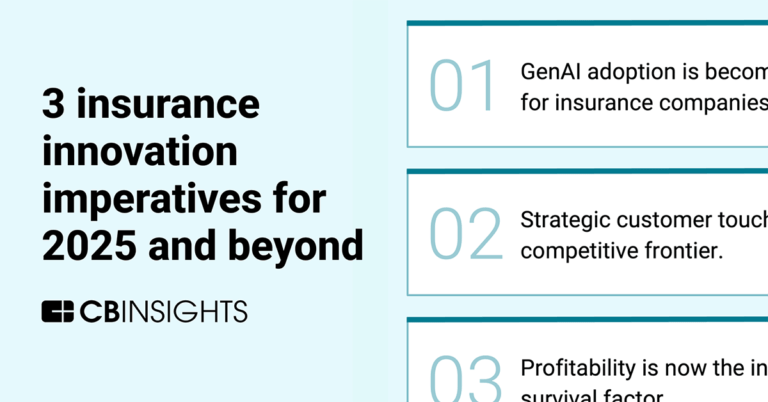
Empathy
Founded Year
2020Stage
Series C | AliveTotal Raised
$162MLast Raised
$72M | 6 mos agoMosaic Score The Mosaic Score is an algorithm that measures the overall financial health and market potential of private companies.
+35 points in the past 30 days
About Empathy
Empathy provides support for individuals and families dealing with loss, operating within the bereavement and legacy planning industry. It offers services including care plans, grief support resources, and assistance with administrative tasks such as probate navigation and legacy planning. It serves the healthcare, life insurance, and corporate sectors, providing solutions to employers, consultants, and life insurance carriers. It was founded in 2020 and is based in New York, New York.
Loading...
Empathy's Product Videos
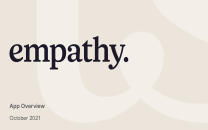
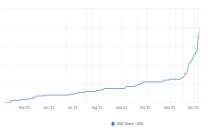
Empathy's Products & Differentiators
Empathy
Empathy’s application provides digital solutions and in-depth guidance for families who have recently experienced the loss of a loved one, giving them the tools and information they need to face all the logistical and emotional challenges of the weeks and months to come.
Loading...
Research containing Empathy
Get data-driven expert analysis from the CB Insights Intelligence Unit.
CB Insights Intelligence Analysts have mentioned Empathy in 3 CB Insights research briefs, most recently on Oct 16, 2025.
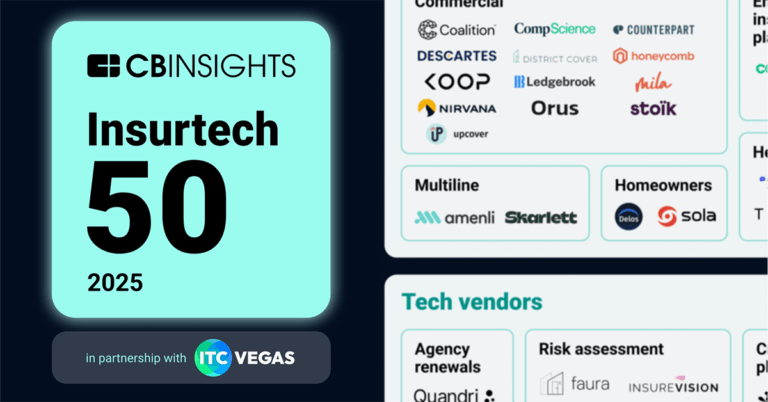
Oct 16, 2025 report
Insurtech 50: The most promising insurtech startups of 2025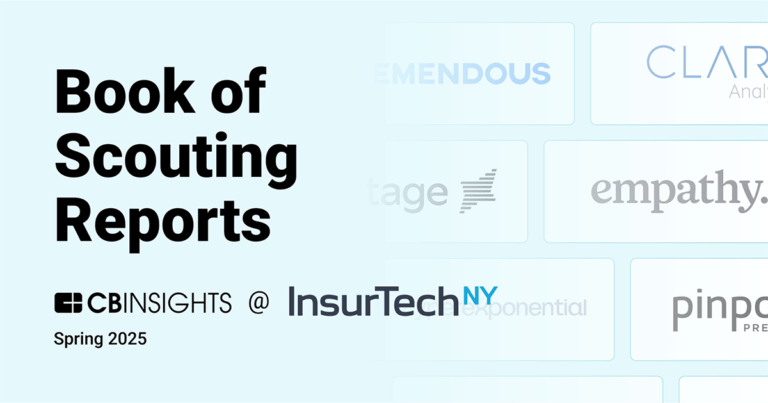
Mar 25, 2025 report
Book of Scouting Reports: InsurTech NY’s 2025 Spring ConferenceExpert Collections containing Empathy
Expert Collections are analyst-curated lists that highlight the companies you need to know in the most important technology spaces.
Empathy is included in 8 Expert Collections, including Insurtech.
Insurtech
3,403 items
Companies and startups that use technology to improve core and ancillary insurance operations. Companies in this collection are creating new product architectures, improving underwriting models, accelerating claims and creating a better customer experience
Fintech
9,809 items
Companies and startups in this collection provide technology to streamline, improve, and transform financial services, products, and operations for individuals and businesses.
Digital Health
12,122 items
The digital health collection includes vendors developing software, platforms, sensor & robotic hardware, health data infrastructure, and tech-enabled services in healthcare. The list excludes pureplay pharma/biopharma, sequencing instruments, gene editing, and assistive tech.
Digital Health 50
150 items
The winners of the third annual CB Insights Digital Health 150.
InsurTech NY — Spring Conference 2025
124 items
Sponsors, speaker companies, and startup competition finalists as of 3.19.25
Insurtech 50 2025
50 items
Do not share
Latest Empathy News
Nov 13, 2025
Her venture, The Love Policy, helps families initiate the conversations and practical steps that make loss survivable. It's a striking paradox: a brand built on love that centers on death. “I grew up in life insurance,” Friedman told me. “In third grade, my dad walked into my class in a white suit and said, ‘Hi, my name is Sid and I'm so lucky because I get to go to work every day and I sell love.' That line never left me.” Years later, after a successful career, retirement, and a season of re-finding herself through service at a local high school, Friedman realized that most families are one unexpected event away from chaos. “GoFundMe is not a plan,” she said. “The most loving thing we can do is talk now. So our people can grieve later.” Why “Selling Love” Isn't Soft. It's Systems Leadership Conscious businesses already “sell love” in implicit ways: Patagonia sells stewardship for future generations; Seventh Generation sells fewer toxins under your sink. Friedman's twist is that her product is a catalyst for one of the toughest human realities. “There ain't nothing digital about death and grieving,” she says. “AI can't hug you.” The macro need is obvious and growing. Roughly half of American adults say they need (or need more) life insurance (about 102 million people) while ownership hovers around half, leaving a persistent coverage gap At the same time, funerals routinely cost $7,000–$10,000 in the U.S., pressure that often arrives before families have a plan And while end-of-life planning is commercializing – an estimated $45B global market by 2030 – the human behaviors lag: large shares of Americans still don't have a will or advance care plan The Love Policy: love, logistics, legacy Friedman's insight is simple and disarming: call life insurance what it really is – a “love policy” – and give people a tangible way to talk about it. What began as a free, demystifying education site has become a physical kit anchored by a keepsake box and a three-part “intentional blueprint”: Heart: prompts to define your legacy and write a handwritten love letter. Logistics: clear, non-salesy guidance on life insurance and wills. When I'm Gone: one-page checklists for week-one realities and key documents. “If I'd had a box from my dad with a note that said, ‘I'll love you from beyond,' I could have visited that love anytime,” she said. “This isn't a filing cabinet. It's a warm hug with instructions.” Her credibility is earned the hard way. She navigated both forms of loss, body-before-mind, and the reverse, and ran businesses where empathy was policy, not posture. “In any service business, all you have are your people,” she told me. “Lead with empathy and compassion. Culture doesn't happen by accident.” ME | WE | WORLD: what 3D leadership looks like when it comes to death ME (Wellbeing & Presence): For leaders, “selling love” starts with the courage to face mortality: your own and others'. It means initiating the talk you've been avoiding. “It's not a sexy conversation,” Friedman admits. “But it is one of the most loving.” WE (Team & Family Performance): Families and teams function better with psychological safety and clear roles, especially in grief. A plan converts fear into tasks and gives space to mourn. “Teach your people everything, including what to do if you're not here,” she says. WORLD (Broader Impact): Planning prevents preventable poverty. Two families with similar means can experience radically different futures after a death – one stabilizes, one spirals – based largely on whether they prepared. “You can change communities one family at a time,” Friedman told me. The equity lens matters. Data consistently show uneven rates of coverage and estate planning by race and income , widening vulnerability for underrepresented communities. That's why Friedman pilots talks and workshops in schools and community organizations: to normalize conversations where planning has historically felt out of reach. Tech is surging; touch still wins There's a fast-emerging “death-tech” sector, from tools that help families navigate probate and benefits to AI “griefbots” that let mourners “converse” with a simulation of the deceased. Empathy , a bereavement-support platform, has attracted substantial investment to streamline post-loss logistics and care. Meanwhile, ethicists warn that interactive “digital afterlife” services may complicate grieving and urgently need guardrails. Friedman's stance sits squarely in the human camp. “Our kit is intentionally analog,” she says. “Because when someone dies, what you crave is presence, clarity, and a way to feel their love. Not another login.” The Leadership Takeaway If your company claims to be purpose-driven, test it in the hardest domain. Would your brand still “sell love” when the customer is grieving, overwhelmed, and offline? The organizations that pass that test design for dignity: they educate simply, remove administrative friction, and center empathy over extraction. They also invest upstream – before the crisis – so families, employees, and communities can withstand the inevitable. “Stop tuning into WIIFM (‘What's in it for me?') and nurture your people,” Friedman told me. “When money isn't your god and the mission is the focus, 1+1 stops equaling 2. It can equal 5.” That math is love – compounded.
Empathy Frequently Asked Questions (FAQ)
When was Empathy founded?
Empathy was founded in 2020.
Where is Empathy's headquarters?
Empathy's headquarters is located at 56 West 22nd Street, New York.
What is Empathy's latest funding round?
Empathy's latest funding round is Series C.
How much did Empathy raise?
Empathy raised a total of $162M.
Who are the investors of Empathy?
Investors of Empathy include General Catalyst, Entree Capital, Index Ventures, Brewer Lane Ventures, Aflac Ventures and 32 more.
Who are Empathy's competitors?
Competitors of Empathy include Bereave, Help Texts, Cariloop, Lantern, Sendoff and 7 more.
What products does Empathy offer?
Empathy's products include Empathy .
Loading...
Compare Empathy to Competitors
Betterleave focuses on providing comprehensive bereavement care services across various sectors, including healthcare and employment. The company offers a range of support services for individuals and families dealing with loss, including advance care planning, support for life-changing diagnoses, caregiver fatigue, anticipatory loss, immediate post-loss, post-loss milestones, and legacy creation. Betterleave primarily serves healthcare providers, employers, insurers, and individuals seeking bereavement support. It was founded in 2022 and is based in Austin, Texas.
Grayce focuses on providing assistance to families in need, operating within the elder care and caregiver support sector. It offers a solution that includes guidance and resources to help families navigate the needs of aging, ill, and vulnerable loved ones. It was founded in 2019 and is based in San Francisco, California.
Workplace Healing specializes in providing solutions for supporting employees through personal life disruptions within the corporate sector. Its main offering is the human recovery platform, a tool designed to help leaders and managers create a supportive environment for grieving employees, aiming to improve engagement, morale, and productivity. The platform serves as a comprehensive guide for companies to handle grief-related absenteeism and presenteeism effectively. It was founded in 2018 and is based in Shawnee Mission, Kansas.

TCARE focuses on providing support for family caregivers within the healthcare sector. Its services include a proprietary clinical protocol that offers tailored care plans and high-touch human support to prevent caregiver burnout. TCARE primarily sells to health plans, insurance carriers, employers, and government agencies. It was founded in 2014 and is based in Saint Louis, Missouri.

Bereave focuses on providing bereavement support services within the business sector. Its main offerings include grief counseling, assistance with estate and account closure, and memorial planning, all designed to help businesses and employees navigate the complexities of loss. Bereave also offers leadership training and policy consulting to equip employers with the necessary tools to support their teams effectively. It was founded in 2020 and is based in Indianapolis, Indiana.

Mitt Arv focuses on legacy planning within the digital security and estate management sector. The company provides a platform for individuals to manage and store assets and important documents, and to create emotional wills for communication with loved ones after passing. It serves individuals wanting to preserve their financial and emotional legacies. The company was founded in 2022 and is based in Singapore.
Loading...

